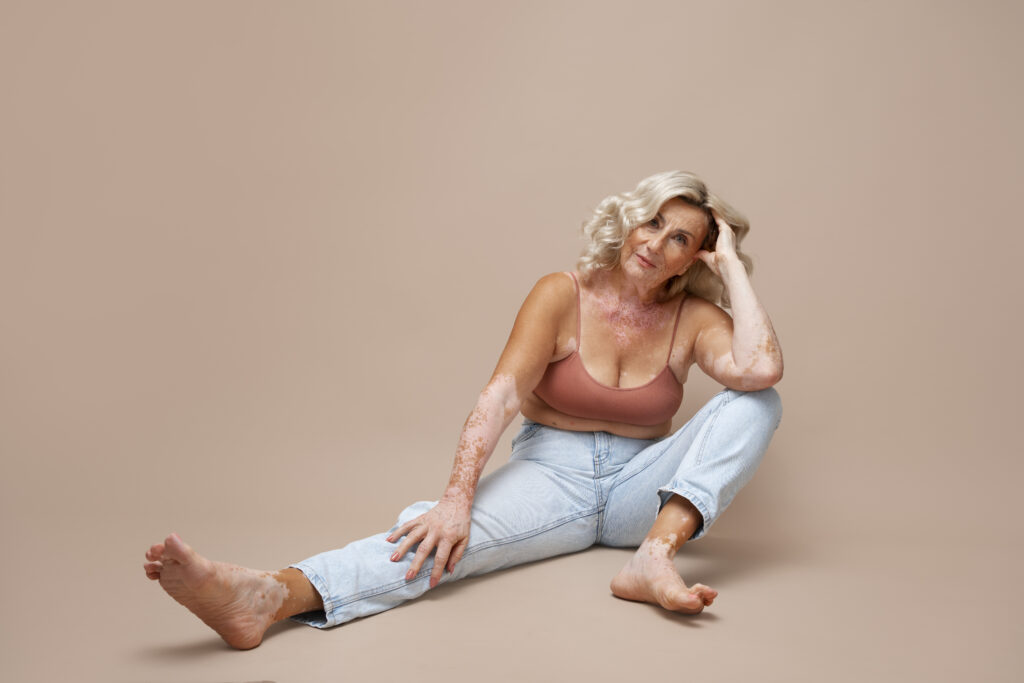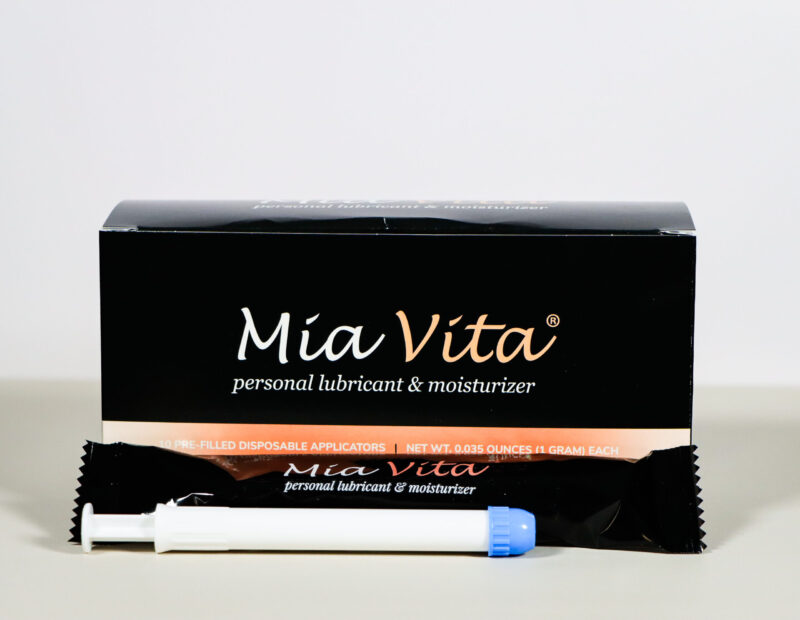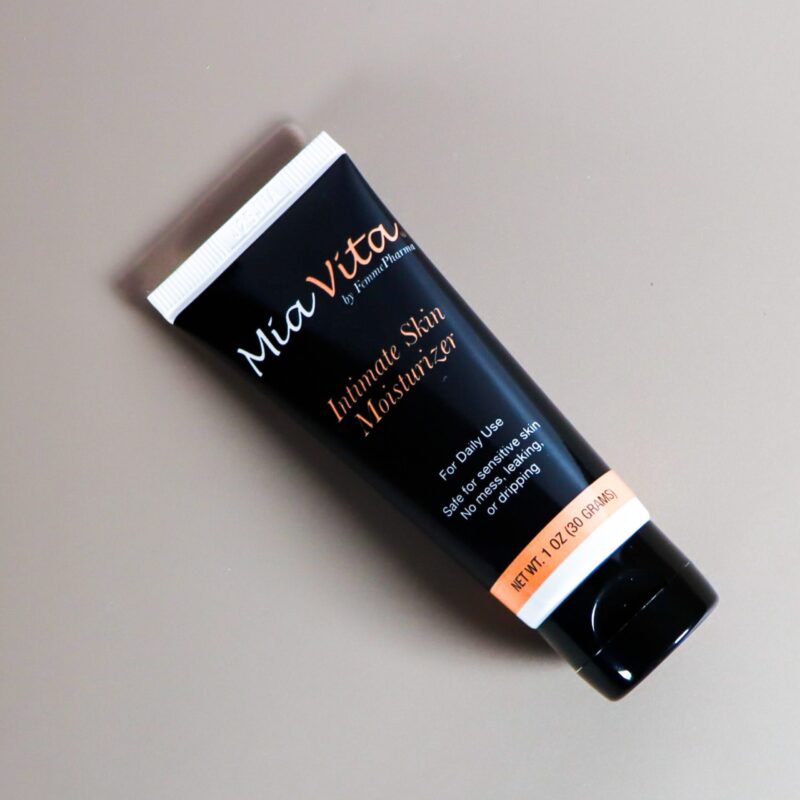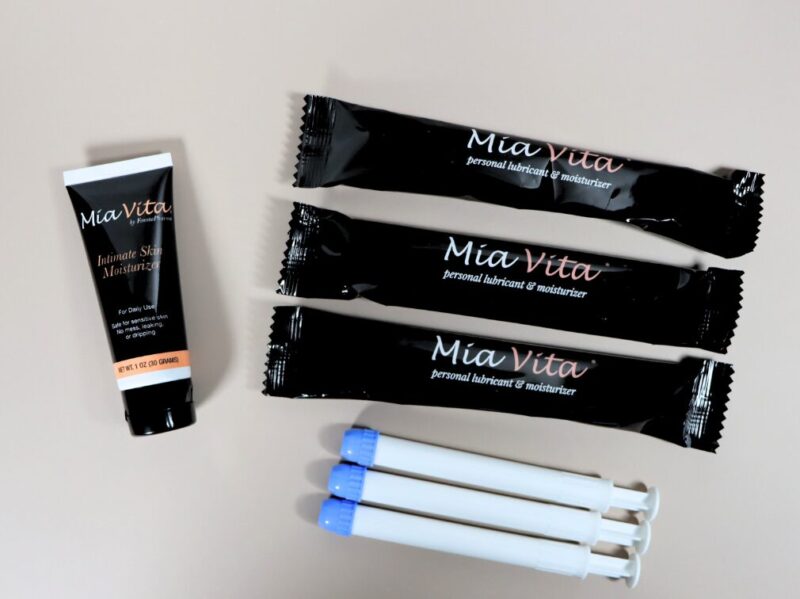Hyaluronic acid is a viscous substance naturally found in the body that attracts and holds onto large amounts of water, making it an excellent biological lubricant. However, with the aging process, production of hyaluronic acid decreases. For menopausal women, the loss of hyaluronic acid in addition to decreasing estrogen levels is a double whammy that can lead to a host of health complications. Hyaluronic acid supplements, topically applied products, or injections may help reverse these effects.
Hyaluronic acid can improve vaginal thinning
As estrogen levels decline in menopause, the lining of the vagina becomes thinner, which leads to a number of uncomfortable effects such as vaginal dryness, pain with sexual intercourse, and increased risk of infections. Hyaluronic acid applied intravaginally may provide an alternative for managing vaginal thinning, or vaginal atrophy, and reducing those undesirable effects. A review of studies involving 335 women found that hyaluronic acid improved vaginal thinning, helped restore vaginal pH to a healthy level, and improved menopause-related pain during intercourse.
Hyaluronic acid can help relieve dry skin
Estrogen makes skin soft, supple, and plump with natural hydration by increasing the production of proteins like collagen and elastin, that lend structural support to the skin, and polysaccharides and hyaluronic acid, that attract and hold onto moisture. These effects are so powerful that even during a woman’s reproductive years, the normal fluctuations of estrogen during the menstrual cycle can cause noticeable and predictable changes in the skin’s appearance, going from oily and acne prone to dry and parched and everything in between, with perhaps a few “good skin days” thrown in.
As menopause sets in, many women are happy and grateful when monthly acne breakouts recede. But equally dismaying is the new normal; skin so dry you can practically feel new wrinkles as they form. And as the outgoing estrogen tide increases through the phases of perimenopause and menopause, so does the ever-worsening dry skin.
Hyaluronic acid can help restore the skin’s lost moisture. When applied directly to the skin it absorbs into the deeper layers and stimulates collagen production. In one study involving a group of women between the ages of 40 and 65 years, a hyaluronic acid-based facial moisturizer improved elasticity and softness, doubled the skin’s moisture content, and significantly improved the skin’s elasticity. The participants reported decreased symptoms of discomfort and tightness associated with dry skin, less sagging around the eyes and forehead and improved skin tone.
Dry eyes during menopause
Dry eye syndrome, a type of ocular surface disease, is a common occurrence in perimenopausal and menopausal women, affecting an estimated 64%. In one study, a type of artificial tear eye drops made with hyaluronic acid was found to be effective for decreasing dry eye symptoms and improving the volume and quality of tear production in a group of menopausal women. The participants applied the eye drops twice a day for 30 days. At the end of the study period, results showed good structural and functional health of the eye surface. There was an increase in the viscosity (thickness) of the tear fluid which allowed the tears to adhere better to the surface of the eye.
Oral health and menopause
During menopause, lower estrogen levels cause the mucous membranes of the mouth to become thinner and the salivary glands, which depend on hormonal signaling (yes, there are estrogen receptors in the mouth), start to produce less saliva. This can leave your mouth feeling parched as well as change the microbiome of the mouth, making you more vulnerable to oral infections, inflammation, periodontal disease, and a condition called burning mouth syndrome, one of the lesser-known conditions associated with menopause that is characterized by a range of painful burning or tingling sensations.
Hyaluronic acid incorporated into oral healthcare products such as lozenges and mouthwash may help increase saliva production and relieve symptoms of oral discomfort. One study showed that patients with chronic dry mouth, a condition called xerostomia, experienced a significant increase in saliva production after consuming a lozenge that contained hyaluronic acid as one of the active ingredients compared to a control lozenge without.
Hyaluronic acid can ease joint pain
Hyaluronic acid is an important contributor to joint health. It makes synovial fluid slippery so that joint surfaces glide easily across each other, contributes to cartilage production, and its anti-inflammatory effects help prevent and manage joint pain. Hyaluronic acid injections have been found to provide effective pain relief and improve hand function in peri- and post-menopausal women with a form of arthritis involving the wrist that commonly occurs at or around menopause. Osteoarthritis of the knee is another very common type of arthritis that often responds well to hyaluronic acid injections, which can reduce the need for other types of pain medications such as non-steroidal anti-inflammatory drugs (NSAIDS) and opioids.
Please check with your healthcare provider to decide which hyaluronic acid may be helpful to address your concerns.
FemmePharma has been helping women navigate menopause for over two decades. No matter where you are in your journey, you deserve to have knowledgeable, intimate healthcare partners to help you feel your best. Explore our other articles, podcast episodes with women’s health experts, and products to ease your transition into menopause.



